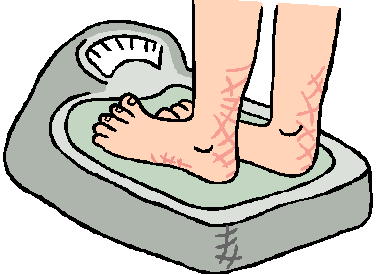Sheila's Nutrition Digest Vol. 5 – Beth Mansfield Interview (Part 2)
By: Sheila Kealey (2005/04/10)
Last week, I interviewed Beth Mansfield about nutrition counseling for athletes - Sheila's Nutrition Digest Vol. 4 - Beth Mansfield Interview (Part 1). In this issue, Beth outlines common problems that she's observed in many athletes and offers sports nutrition guidelines.
You've been counseling athletes about their nutrition needs for years. Are there some nutrition issues and concerns that you see more than others?
Most people, athletes and non-athletes alike, tell me that they are aware of the importance of good nutrition, but when they sit down to eat, their eating patterns are often less than optimal.
- 90% report that they are not eating properly
- 45% report having days when they don't have enough energy to exercise
- 84% do not eat an hour before working out
- 76% wait an hour or longer to eat after exercise
- Only 10% eat 6 times per day
Here are some other key problems I've observed, and general guidelines:
Many athletes also don't take in enough carbohydrate rich foods
One key problem is the lack of high quality carbohydrate in everyone's diets. This is likely a result of the fascination with low carb dieting and the rapid weight loss that occurs. Unbeknownst to most is that the rapid weight loss initially seen on a low carb diet is water loss. For each gram of carbohydrate stored in the muscles another 3 grams of water are stored along with it. This "metabolic" water ensures that the muscle cells are well hydrated and can keep functioning optimally throughout your training sessions. One tough training session can use up a large chunk of your muscle carbohydrate (and muscle water) so it is not surprising that we see huge weight losses within a day or two of eating a low carb diet. But then comes the knockout punch - if you do not replace this muscle carbohydrate you lose the ability to train hard - so low carb eating is not for athletes or anyone trying to improve their fitness level.
Kenyan runners like to say, 'You must eat to train and race hard - not to get skinny'

Low carb dieters remain convinced that carbs are responsible for weight gain - and this is confirmed when carbohydrate rich foods (usually breads) are eaten on a day off the diet and a 5 lbs weight gain is seen. The automatic assumption is that weight gain on the bathroom scale is body fat gain, which is actually physiologically impossible to do in one day. In fact the previously empty muscle carbohydrate stores have simply refueled - with carbohydrates and water. The associated weight gain is very transient in nature because the now ample supply of muscle carbohydrate re-energizes the body to be able to do higher-quality training and the muscle energy makes it easier to train for longer periods of time. The extra carbohydrates make you considerably fitter! Eating more - not less - is often a key way to improve performance.
Happy muscle cells are carbo-loaded!
Athletes who are "watching their carbs" may end up feeling tired and drained in no time. This disappears rather rapidly when they begin to stock up on carbohydrate rich foods. While carbohydrate rich foods are every athlete's best energy foods this does not mean slurping away on soft drinks, stuffing in plates of pasta or wolfing down middle of the night brownies with ice cream. It means choosing just enough nutrient rich carbohydrate rich foods to meet training needs.
Follow these pre, during and post workout guidelines
PRE-WORKOUT Fluid & Food Guidelines:
The intensity of the exercise will also dictate how much you will be able to eat and how close to your exercise you will be able to time your eating. High intensity exercise means that you should try to eat a few hours before whereas long, slow distance exercise may not require the additional time for digestion. If you are one of those frequent feeders that has to eat something right before you exercise, that's okay. Just follow these guidelines: choose something rich in complex carbohydrate, low in fibre, fat and protein, and preferably liquid if it is within the hour before exercising. Using Canada's Food Guide, emphasize carbohydrate-rich selections from within each food group. Here are some great choices:
- White bread, bagels, wheat crackers, scones
- Low fibre cereals e.g. cheerios, cream of wheat with milk or yogurt
- Vegetable and fruit juices, fruit cocktail, fruit drink
- Low fat milk, flavoured milk/soy milk and yogurt/yogurt drinks
- Stick to your own tried and true favorites that fall within the guidelines suggested AND ensure that you are well hydrated BEFORE beginning your training/competition.
DURING WORKOUT Fluid & Food Guidelines:
If the activity is vigorous and for longer than 90 minutes, take in some carbohydrate with your fluids e.g. sport drink or diluted fruit juice. For prolonged endurance events or activities (2 hours or more), eat small carbohydrate rich snacks (approx 15-20 gms/60-80 kcal of carbohydrate) every 20 minutes or so. Examples include dried fruits, fig newtons and oatmeal cookies, energy, or sport gels. This ingestion of carbohydrate during exercise has the potential to delay fatigue and enhance exercise performance. Remember that everyone is different and that what works for you is not necessarily the best choice for one of your training buddies!
POST WORKOUT Fluid & Food Guidelines:
Muscle glycogen (stored carbohydrate) may be measurably reduced after 45 minutes of moderate intensity exercise. Glycogen depletion can occur in:
- endurance athletes: runners, rowers, cyclists
- in team sports such as soccer
- in fitness and aerobics instructors
- in resistance athletes e.g. weight trainers
- in high intensity intermittent exercise e.g. interval sprint training
The more glycogen you burn off the greater and more receptive your muscles will be to re-fueling. That means that the tougher a workout is (a function of intensity and duration), the more important it is for you to refuel...ASAP! To maximize muscle glycogen stores, carbohydrate-rich foods should be consumed immediately after exercising. Timing is critical to restore muscle glycogen. Research shows that athletes who want to store maximal amounts of muscle glycogen for optimal training and peak performance should shift their intake of carbohydrate-rich foods to immediately after workouts. In fact the best way to rapidly replenish muscle glycogen is to eat or drink carbohydrate immediately after exercise. When carbohydrate is combined with protein, this muscle glycogen storage is enhanced post exercise. Skim milk, fruit yogurt or chocolate skim milk are ways to encourage post workout refueling with carbohydrate-protein combinations. Make your own power punch for recovery nutrition by combining fruit and/or fruit juices with milk or plant based beverages.
Additional Guidelines for Female and Male Endurance Athletes
Eat Enough and On Time
Surveys suggest that most athletes do NOT consume sufficient energy to support needs. They have a tendency to supply needed energy AFTER it is needed mainly because they are poor planners with many work, home and sport commitments or they are restricting their intake to achieve too fast a rate of weight loss leading to disordered eating patterns. Training on too few calories can lead to chronic fatigue, poor immune function, loss of muscle mass and decreased performance.
Practice makes perfect
Your digestive system (as well as your muscles) needs some training to be able to keep you well fueled during your training sessions (and competition). If you want to be able to eat and drink comfortably during your marathon (or longer) event, you need to be practicing that in training. Exercising hard while eating and drinking are not things that your body would normally prefer to do at the same time - but just like skiing fast, eating is a learned skill that requires the same amount of practice and attention to detail. If you plan on consuming 200-300 calories an hour and 1 litre of fluid (for example) during your race you need to practice consuming both of these in your training. Don't skimp on fluid or calories during training!
So why do so many of us train on too few calories (and fluids)?
All it takes is getting dropped by the pack when the pace picks up or on a hill climb during training and it's easy to start thinking that "if I just lost a couple of pounds I would be able to stay with the pack". The problem with trying to diet while training is that the lack of calories and specific nutrients (especially carbohydrates) wreaks havoc on your muscles and immune system and makes you prone to injury. Taking in far fewer calories than what your body requires may result in the body attacking it's own tissues, resulting in a weakened muscular and immune system. Training, building muscle and following a sound diet are the best way to lose weight because it comes off slowly.
How much do you need to eat?
Track your intake for three days - don't change anything. If you are able to answer yes to the following questions then you are likely eating enough:
- Can you train without undue fatigue? (i.e. you can train well throughout each training session)
- Do you have a fast recovery between training sessions? (i.e. you are energized for each training session)
- Are you maintaining your body composition (i.e. not losing muscle mass or gaining body fat)
- Do you have optimal biological functioning (e.g. regular menstrual periods for women, able to sleep well, concentrate on the tasks at hand, etc)
- Is there an absence of health & performance issues?
If you answered NO to any of these questions then there are changes you can make to your eating patterns, food choices and timing of food intake to improve your health, your ability to train well and achieve peak performance in your sport. Sign up for a sport nutrition workshop with Peak Performance and learn how to balance out your eating plan to meet your energy and nutrient needs.
To learn more about the nutrition the nutritional services at from Peak Performance, check out www.peakperformance.on.ca/services/nutrition.htm.
Some other Resources..
Sport Nutrition Services - www.peakperformance.on.ca/services/nutrition.htmCorporate Workshops - www.peakperformance.on.ca/services/corporate.htm
Nutrition & Lifestyle Services - www.peakperformance.on.ca/services/lifestyle.htm
Therapeutic Lifestyle Change Program - www.peakperformance.on.ca/services/coping.htm
Peak Performance Resources - www.peakperformance.on.ca/resources/index.htm
Links to Other Articles - www.peakperformance.on.ca/
CTV/CJOH Archives - www.peakperformance.on.ca/scoop/index.htm
Email Beth - beth@peakperformance.on.ca.


